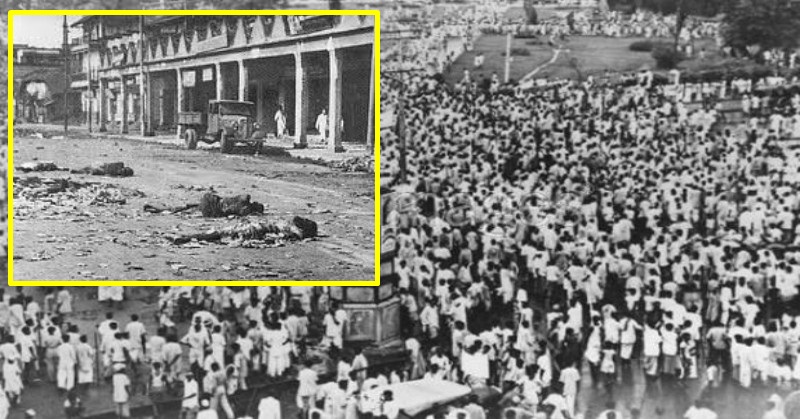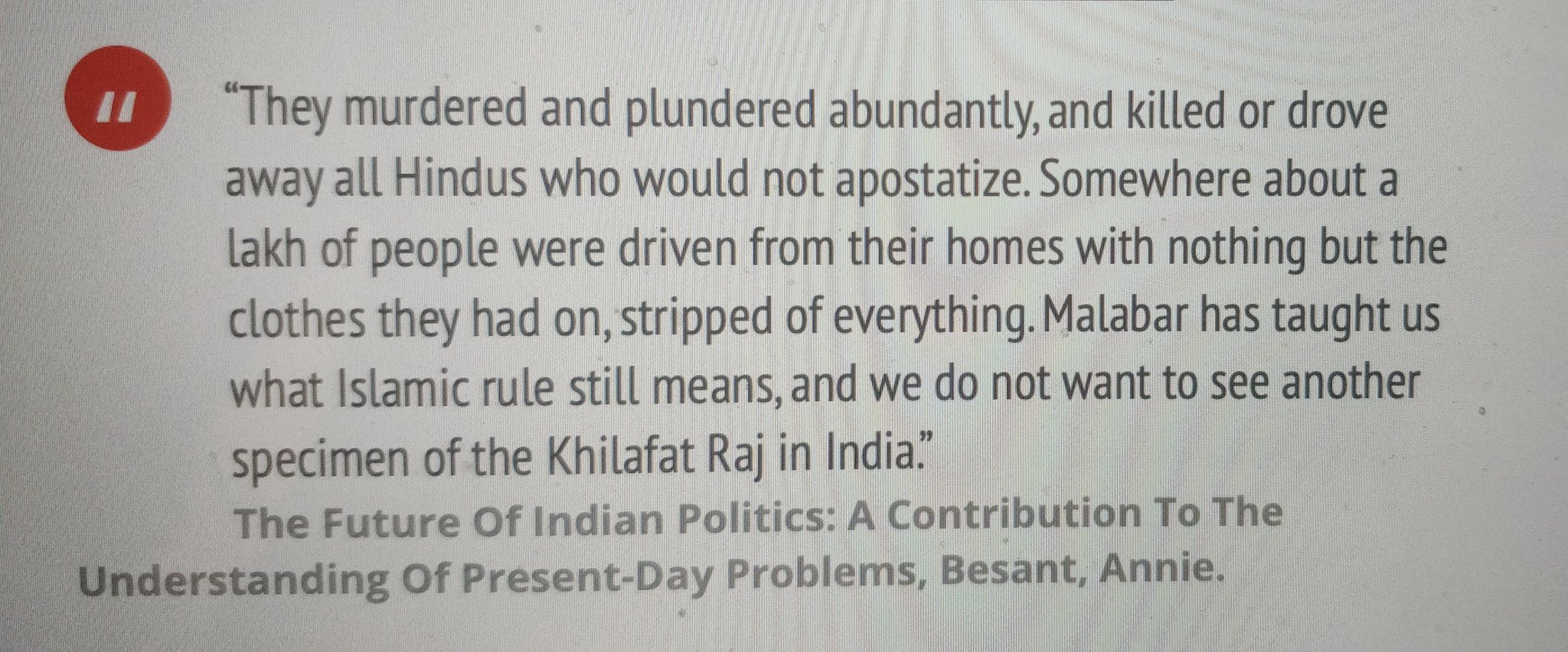The Moplah Genocide of 1921: Unveiling a Dark Chapter in India's History
 |
| A rally celebrating 100 years of the Genocide |
On September 25, 1921, a gruesome incident unfolded on the barren hillside between Thuvoor and Karuvayakandi in North Kerala, marking a dark chapter in India's history. The event was a rally led by Chambrassery Imbichi Koithangal, a prominent leader of the Khilafat movement, attended by over 4,000 of his followers. This rally would lead to the merciless slaughter of 38 Hindus, but it was just one horrifying episode in a broader tragedy known as the Moplah Genocide.
The backdrop to this atrocity was the Khilafat movement, initiated by Indian Muslims to preserve the authority of the Ottoman Sultan as the Caliph of Islam following the breakup of the Ottoman Empire after World War I. Mahatma Gandhi offered unwavering support to this movement, believing it would strengthen anti-British sentiment among Indian Muslims. However, this support inadvertently fueled the flames of Islamism in India.
Critics like Dr. B.R. Ambedkar questioned the ethical basis of the Khilafat movement, and Dr. M.G.S. Narayanan pointed out that Gandhi's support for it inadvertently legitimized conservative religious instincts among Muslims and fueled communalism.
In this charged atmosphere, the Moplah Muslim community in Malabar, with a history of periodic violence against non-Muslims, unleashed a brutal rampage against Hindus in August and September 1921. Their goal was to establish an Islamic State in which Hindus had no place. Official records state that over 10,000 Hindus were slaughtered by Muslim fanatics during this period, but unofficial accounts suggest the actual number was much higher.
 |
| Ali Musliyar on of the main instigators of Moplah Jihad |
One particularly gruesome incident occurred on September 25, 1921, during Chambrassery Imbichi Koithangal's rally. More than 40 Hindus were captured, with their hands tied behind their backs, and charged with aiding the military against the Moplahs. Thirty-eight of them were sentenced to death. Three were shot, while the others were beheaded, their lifeless bodies discarded in the Thuvoor well.
Diwan Bahadur C. Gopalan, who served as Deputy Collector of Calicut, Malabar, documented the chilling account of that fateful day in his book "The Moplah Rebellion, 1921." Gopalan described how the victims were taken to the well, where an executioner beheaded them one by one, pushing their bodies into the well. Many of the victims were not yet dead, but the well's steep, rocky sides offered no escape. Cries for help could be heard from the well even on the third day of the massacre. The bottom of the well was filled with human bones, and one skull, in particular, was found neatly divided into two halves, a horrifying testament to the brutality of the act.
Despite such harrowing accounts including that of Annie Besant, there remains a lack of an official, comprehensive record of the Moplah genocide of Hindus. Some historians have attempted to downplay it as an agrarian uprising or a conflict between laborers and zamindars. However, the authentic historical accounts paint a starkly different picture, one characterized by forceful conversions, atrocities against Hindu men, women, and children, and the fanaticism that found support from Congress leaders, most notably, Mahatma Gandhi.
The Moplah Genocide of 1921 stands as a grim reminder of the horrors that can unfold when communal tensions are stoked, and fanaticism is allowed to thrive. It is a chapter in India's history that must not be forgotten, for it serves as a warning against the perils of religious extremism and political opportunism. Remembering the victims and acknowledging the historical truths of this tragedy is essential to promote tolerance, peace, and communal harmony in the diverse tapestry of India.
Bibliography:
- Nair, C. Gopalan. "The Moplah Rebellion, 1921." 1923.
- Savarkar, Vinayak Damodar. "Moplah." 1924.
- Ambedkar, Dr. B.R. "Pakistan or The Partition of India." Volume 8, 1946.
- Besant, Annie. "The Future of Indian Politics." 1922.


Comments
Post a Comment